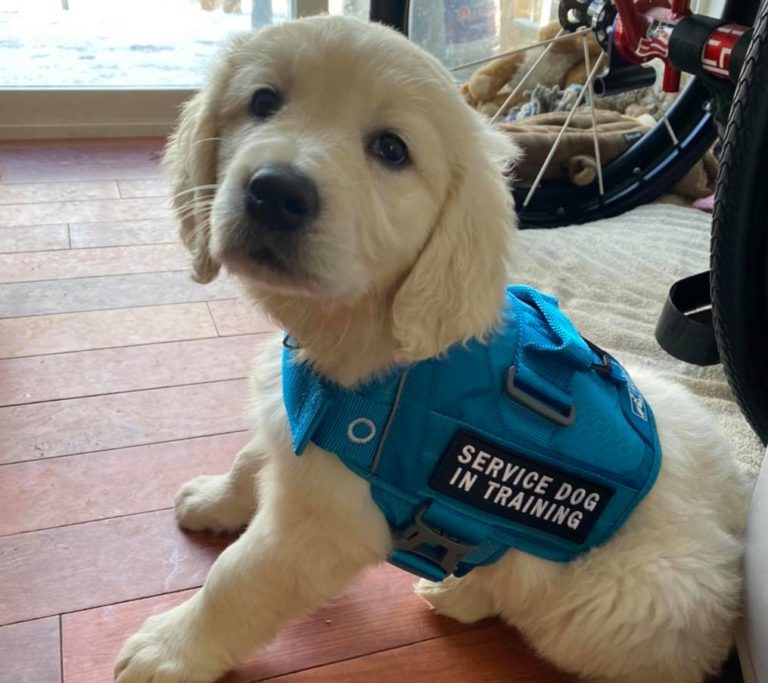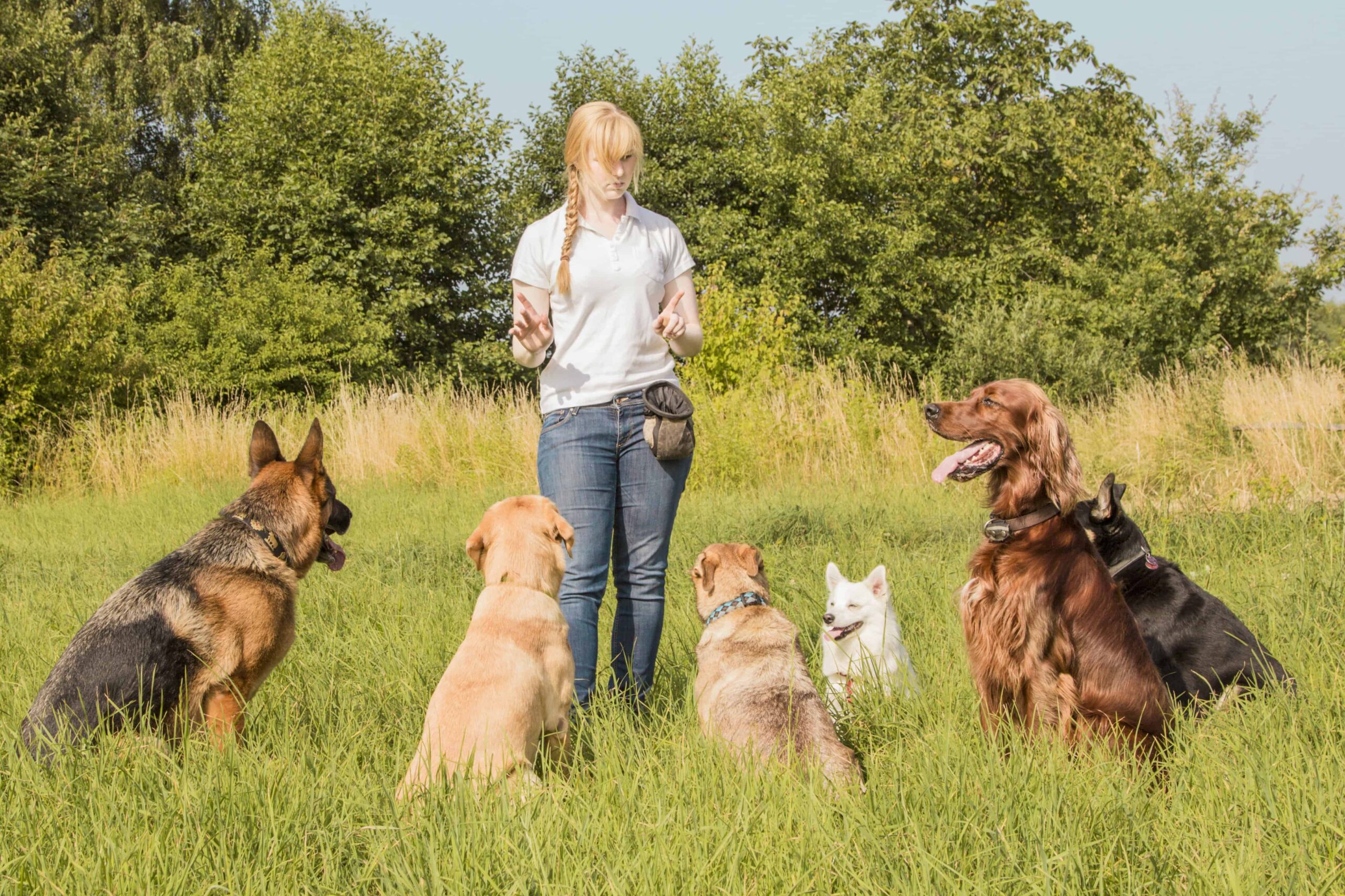Dog Training Charlotte NC: Your Course to a Well-Behaved Dog
Dog Training Charlotte NC: Your Course to a Well-Behaved Dog
Blog Article
Unlock Your Pet dog's Possible: Proven Dog Training Techniques for Success
Effective pet training is a nuanced process that hinges on comprehending canine behavior and utilizing scientifically backed techniques. dog training charlotte. By integrating favorable support, establishing clear commands, and focusing on socialization, pet dog owners can cultivate a productive connection with their pets. However, challenges commonly develop that require customized solutions and a patient method. Exploring these proven approaches reveals not just the possibility for behavioral improvement yet additionally the much deeper bond that can be created between owner and canine. What crucial approaches must be taken into consideration to absolutely open your dog's possibility?
Comprehending Dog Habits
Understanding dog actions is important for reliable training and cultivating a positive partnership in between pets and their owners. An extensive grasp of canine body language, vocalizations, and social interactions is vital for acknowledging their requirements and feelings. Pet dogs interact primarily with non-verbal signs; for example, a wagging tail may indicate enjoyment, while pinned ears can signify fear or submission.

Additionally, environmental factors play a considerable duty in forming a canine's habits. Changes in regular, new environments, or the presence of strange people can lead to tension or anxiousness in canines. Recognizing these triggers enables proprietors to alleviate damaging reactions and establish appropriate training techniques.
Ultimately, a deep understanding of dog actions lays the foundation for effective training approaches, boosting both actions and the general bond in between the pet and its owner. dog training charlotte. This knowledge is vital for promoting a well-adjusted, delighted canine companion
Favorable Reinforcement Methods
Reliable training relies greatly on positive reinforcement techniques, which have been revealed to generate considerable results in shaping wanted actions in canines. This approach involves compensating a pet for displaying certain actions, therefore raising the possibility that these habits will be duplicated. Rewards can take various kinds, including deals with, praise, toys, or play, depending on what encourages the specific canine.

It is important to gradually eliminate rewards as the canine finds out the habits, transitioning to recurring support. This strategy preserves the actions with time while preventing reliance on constant incentives. By concentrating on positive support, trainers can grow a trusting relationship with their pet dogs, promoting a healthy and participating training environment that improves general obedience and performance.
Establishing Regular Commands
A basic element of successful pet dog training is the facility of consistent commands. Uniformity in commands is essential for effective communication between the pet and the trainer. When commands are uniform, pet dogs find out to link details words with wanted actions, which speeds up the training procedure and enhances understanding.
To these details develop regular commands, it is vital that all relative make use of the same terminology and motions. If one person uses "rest" while an additional states "rest down," it can produce confusion for the dog. Select clear, distinct words for commands official site and make certain everybody involved in the pet dog's training sticks to these selections.
Furthermore, repetition is vital. Strengthen commands through constant practice, making certain that the canine obtains enough possibilities to react properly. When a pet efficiently complies with a command, immediate positive support needs to follow. This could be in the type of deals with, praise, or playtime, strengthening the link in between the command and the activity.
Last but not least, be client. Establishing consistent commands takes some time and initiative. With devotion and clarity, you will assist your canine establish a strong understanding of assumptions, inevitably leading to a mannerly companion.
Socialization and Direct Exposure
Socializing a canine is essential for promoting a positive and well-adjusted companion. This process involves subjecting your pet dog to a range of settings, individuals, and other pets to create their social abilities and flexibility. Early socializing, ideally between the ages of three to fourteen weeks, is critical, as it lays the groundwork for a canine's future behavior.
During socialization, objective to provide favorable experiences in various setups, such as parks, active streets, and homes with various other family pets. Present your dog to various stimuli, consisting of audios, views, and smells, making certain that each experience is fulfilling. This direct exposure aids minimize concern and anxiety, leading the way for a much more resilient dog.
Involving in controlled group play sessions with various other dogs can also improve social skills, educating your family pet suitable communications and borders. Constantly click to investigate monitor your pet's convenience degree during these experiences, slowly boosting direct exposure as their self-confidence expands. Keep in mind, the objective is to develop a well-rounded animal that flourishes in diverse scenarios, advertising a harmonious partnership with both human beings and other animals. Focusing on socializing will significantly add to your pet dog's general joy and actions throughout their life.
Conquering Common Educating Challenges

An additional frequent issue is interruption. Pet dogs might struggle to focus in strange or busy setups. Gradually desensitize your pet dog to diversions by beginning training in a peaceful atmosphere and slowly introducing even more stimulations as they become skilled (dog training near me). Positive support techniques, such as treats and praise, can keep motivation and focus.
Additionally, behavioral concerns like leaping or too much barking can become irritating. Address these by educating different behaviors, such as sitting steadly when greeting visitors. Uniformity and perseverance are important; enhance wanted habits continually and stay clear of scolding, which can result in complication.
Lastly, identify that each dog is unique, and training timelines might differ. Dressmaker your method to your canine's individual needs, and look for professional assistance if essential. With willpower and the appropriate approaches, getting rid of these obstacles can bring about a trained, pleased canine companion.
Final Thought
In final thought, opening a dog's potential requires a detailed strategy that incorporates an understanding of canine actions, the application of favorable support strategies, and the establishment of regular commands. Early socialization and direct exposure to diverse settings additionally boost a dog's versatility and self-confidence. By addressing common training challenges with tailored techniques and perseverance, a participating and harmonious connection in between pet dog and trainer can be promoted, eventually leading to a mannerly friend qualified of flourishing in different circumstances.
Effective pet dog training is a nuanced process that pivots on comprehending canine behavior and utilizing clinically backed strategies.Comprehending pet habits is vital for reliable training and fostering a positive partnership in between pets and their proprietors.Efficient training relies heavily on favorable reinforcement strategies, which have actually been revealed to yield significant results in forming wanted actions in pet dogs. When commands are consistent, canines find out to associate specific words with preferred behaviors, which speeds up the training procedure and boosts understanding.
In verdict, opening a pet's prospective necessitates a thorough technique that integrates an understanding of canine habits, the application of favorable support techniques, and the establishment of regular commands.
Report this page